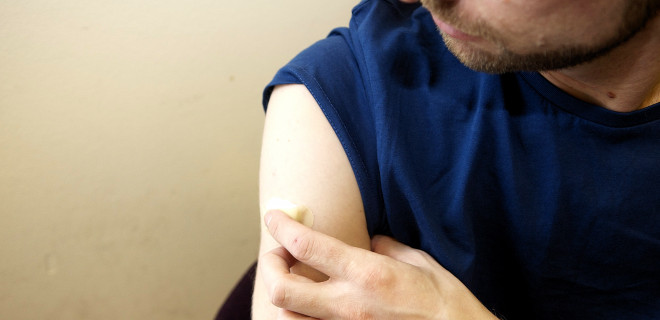
For over a year in the UK, we’ve been living under various restrictions as a result of the COVID-19 pandemic and the efforts to limit its spread.
However, as lockdown begins to loosen across the UK (with different roadmaps in England, Scotland, Wales and Northern Ireland) and rates of COVID-19 are lower, we know that some of us will be having sex – or more sex – once again.
If that’s you, it’s important to think about whether it’s time to test for sexually transmitted infections (STIs) beforehand and how you’re protecting yourself against STIs (including HIV) and, if appropriate, unplanned pregnancy. This is especially true if you stopped taking the contraceptive pill or HIV prevention drug PrEP during the latest lockdown.
Below is our advice on managing the risk of COVID-19 while having sex and a checklist to make sure you’re looking after your sexual health this summer.
If you have additional questions, please contact THT Direct or the national sexual health information line on 0300 123 7123. You can also read the Government's advice on coronavirus for the most up-to-date guidance.
COVID-19 and sex
If you're having sex with someone new, talk to them about COVID-19 and manage the risks together.
If you or your partner have any COVID-19 symptoms or have recently tested positive for COVID-19, don’t have sex. Get tested and isolate for 10 days from when symptoms first appear.
If a person has been fully vaccinated, they have a lower chance of getting very ill with COVID-19 or passing it on to other people. You should still take every precaution to prevent getting or passing on COVID-19, and should continue to follow local public health guidelines for your area.
Get checked for STIs and HIV
Lockdown has meant that you may not had a check-up in a long time – but many people with STIs don't get symptoms, so it's worth getting tested even if you feel fine. This is true for HIV too.
If left untreated, STIs and HIV can affect your health. If you have an STI or HIV, the earlier you're tested, the sooner any treatment can be given.

Condoms
It’s easy to protect yourself and your partner(s) from STIs and unplanned pregnancies by using condoms correctly and consistently.
You may be hesitant over using condoms because of how they feel, or worried how well they work. However, which condom you choose makes a big difference so take our condom quiz to find the best one for you.
Using lube with condoms makes sex safer and more pleasurable. It reduces the risk of cuts in the skin, and can also prevent condoms tearing. Only use water-based lube with condoms.
Get free condoms and lube from:
- sexual health clinics,
- some doctor’s surgeries,
- some sexual health charities.
Buying condoms and lube online is cheaper and there is a greater range to choose from.
We also offer free condoms by post to certain areas of the country.
Contraception
Sex may have been 'on pause’ during the latest lockdown. This may change once restrictions ease, so it’s the perfect time to consider using contraception to get prepared.
There are many types of contraception you can use to protect you or your partner from pregnancy, from oral contraceptive pills and long-acting reversible methods to condoms.
Find out which option is right for you and where you can access it.
Emergency contraception
If you've already had vaginal sex without any contraception (or the method used failed) you can access emergency contraception (EC) up to five days afterwards to prevent pregnancy.
It can be very effective but not as much as regular contraception used consistently and correctly. EC is not recommended as a replacement for regular contraception.
PrEP
Pre-exposure prophylaxis (PrEP) is a medication that someone without HIV can take. It'll stop them getting HIV during sex without a condom.
It is highly effective at preventing HIV, but it does not protect against STIs or unplanned pregnancy.
PrEP is available on the NHS for free for some people who are at high risk of HIV infection. Contact your local sexual health clinic to find out more.
PEP
If you think you have been exposed to HIV, then PEP could help. PEP is a treatment that can stop an HIV infection after the virus has entered a person’s body.
To work, PEP must be taken within 72 hours (three days), and ideally should be taken within 24 hours.

Consent
Once social distancing rules ease up, the sex you choose to have should be fun and pleasurable. It’s good to discuss your likes, dislikes and what you are happy doing with a partner or partners beforehand. Sexual consent means freely agreeing to sexual activity.
Remember, you can withdraw consent at any time during sex if you want to stop. If you're unsure if someone is consenting then it’s simple, just ask!
Drugs and alcohol
Drugs and alcohol often increase the chances of you having unprotected sex. Additionally, they also affect people’s ability to effectively communicate and establish consent.
Be prepared by having condoms and lube. If you know you're likely to be having sex under the influence of alcohol and drugs, you may also want to consider taking PrEP as a form of HIV protection.
Questions and support
If you have any additional questions about anything on this page, please contact THT Direct in confidence for free on 0808 802 1221 or the national sexual health information line on 0300 123 7123.



